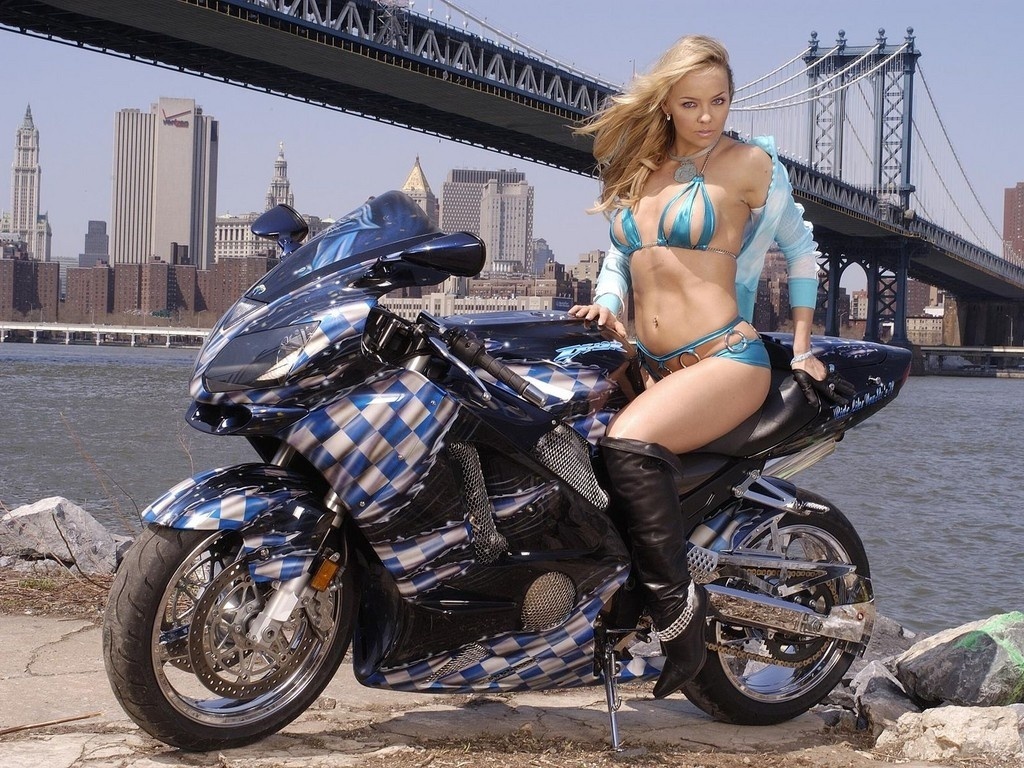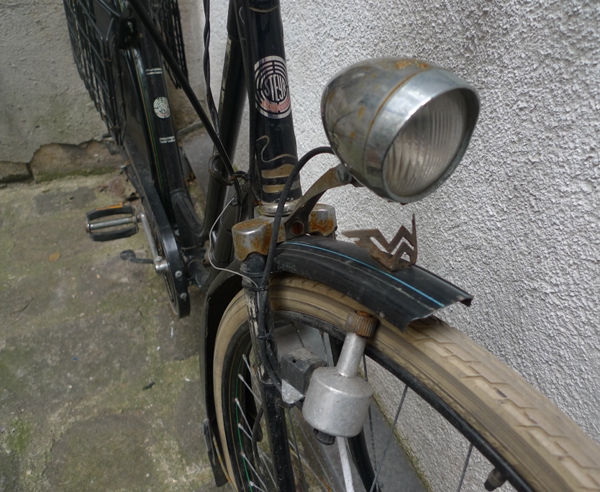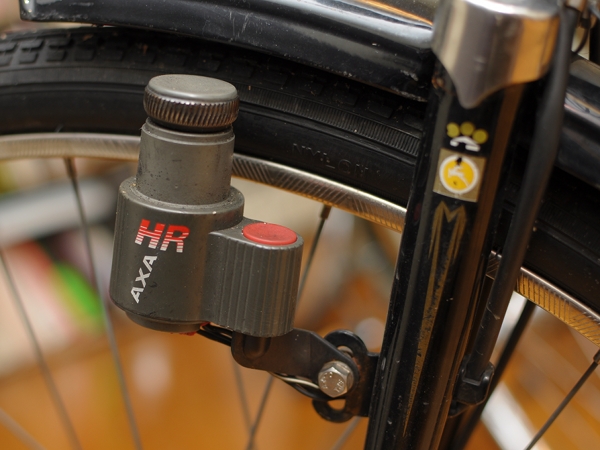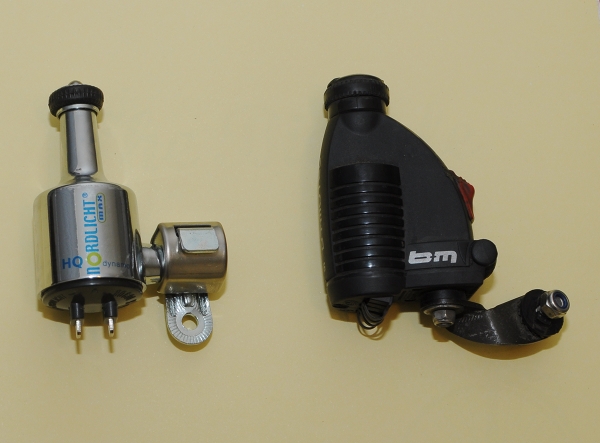The vintage Gazelle I now ride as my main transportation bike has a bottle generator as well - this one from the 1990s. It is well-used and worn out, but works fine - both before and after we converted the lights on this bike to LED.
While I am not suggesting that a bottle dynamo is "better" than a hub, I think that it does have some underrated virtues, and that in some cases it can make sense to use it. Consider, for example, that...
Bottle-powered lights are just as bright. Most modern bottles can handle the exact same voltage as most modern hubs (6 volts / 3 watts). This means that I can use the same LED lighting set-up with a bottle as I would with a hub. There are differences in efficiency and a few other factors, but when using a bicycle for transportation at urban speeds, I have never felt this difference.
The bottle is easy to install. If you don't yet have generator lighting on your bicycle, installing a bottle is a matter of clipping it to the fork, or to one of the rear stays, using a bracket. Installing a generator hub is considerably more difficult: You must either rebuild the front wheel around the hub, or buy a new wheel with the hub pre-installed.
The bottle is less costly. A good dynamo hub costs around $80 on average, plus the wheelbuilding fee (or the price of a new wheel) - which can run rather high. In the EU, a decent bottle can be had for under $30, with no additional fees involved.
The bottle weighs less! Surely that's an important factor for all of you out there counting grams on your roadsters and Dutch bikes?
Because my vintage Gazelle's bottle has seen some wear, I will soon replace it with this Nordlicht HQ that an acquaintance has sent from Holland - which is both a more modern, and a more classic-looking model.
And I also have this modern B&M dynamo that I acquired second-hand and plan to install either on my Bella Ciao or on my Raleigh DL-1. I am curious how these will perform in comparison to each other, as well as in comparison to the older AXA that is currently on my Gazelle - though I suspect I will not feel a difference.
I know that most of you probably prefer hubs, and I myself have excellent generator hubs on my touring bicycles. But sometimes a bottle is just a simpler solution - especially when the bicycle itself is simple. If only the choice of commercially available bottle generators was as rich in the US as it is in the Netherlands! Does anybody else out there use bottles? anybody prefer them?







.jpg)











0 comments:
Post a Comment